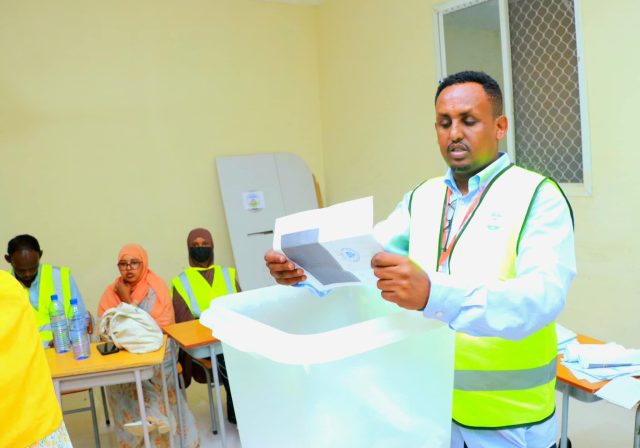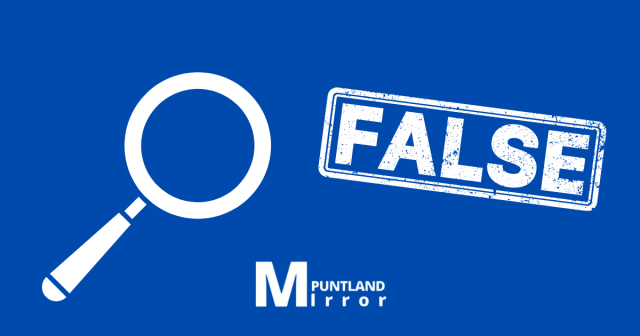The mayor did not make the said remarks.
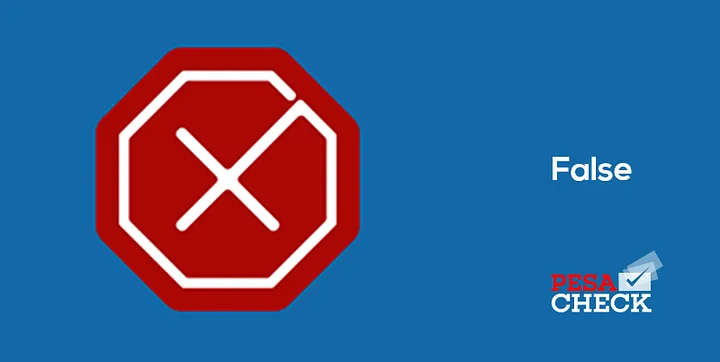
This TikTok video purportedly claiming that Somalia ranks first among countries with the highest rates of HIV/AIDS and hepatitis in the world is FALSE.
The Somali text on the video reads, “I hope you listened to Madale?”
The TikToker in the 2-minute video quotes the Governor of Banadir region and Mayor of Mogadishu, Yusuf Hussein Jimale Madale, as the source of the information.
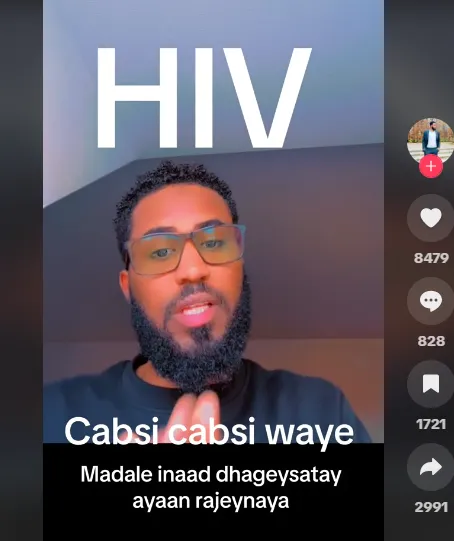
In the video, the TikToker says, “Somalia ranks first in the world for HIV/AIDS and hepatitis. My brother has already died of Hepatitis. People may appear healthy outwardly, but they are afflicted with the disease. Even doctors are affected.”
But, did the mayor say that Somalia has the highest rates of HIV/AIDS and hepatitis infections in the world?
In an address at the inauguration of the Public Health Emergency Operation Center (PHEOC) in Mogadishu on 24 April 2024, Madale said many people were living with HIV. The mayor added that 170 public servants were diagnosed with hepatitis in the past few months.
Madale called on the city’s health department to increase its efforts, emphasising that even some of the medical professionals require treatment.
However, Mogadishu’s mayor did not mention or rank Somalia first in the world for HIV/AIDS and hepatitis infections.
PesaCheck contacted the spokesperson of the Banadir regional administration, Salah Hassan Omar, who disowned the claim in the video, saying that the mayor was speaking about increasing healthcare efforts.
“On behalf of the Mogadishu mayor and the Banadir regional administration, I confirm that the content in the video in question is false,” Omar said via WhatsApp.
PesaCheck reviewed WHO’s Global Hepatitis Report 2024 and the Joint United Nations Programme on HIV/AIDS prevalence estimates table to verify the TikToker’s claim.
The UN agency’s Hepatitis Report 2024 showed that Somalia is not one of the top ten countries with two-thirds of all hepatitis cases. The first ten countries are Bangladesh, China, Ethiopia, India, Indonesia, Nigeria, Pakistan, the Philippines, Russia, and Vietnam.
Furthermore, Somalia did not feature among the top 20 countries with the highest prevalence of HIV in 2000 and 2022 or among the top 10 countries with the highest HIV prevalence rates in 2024.
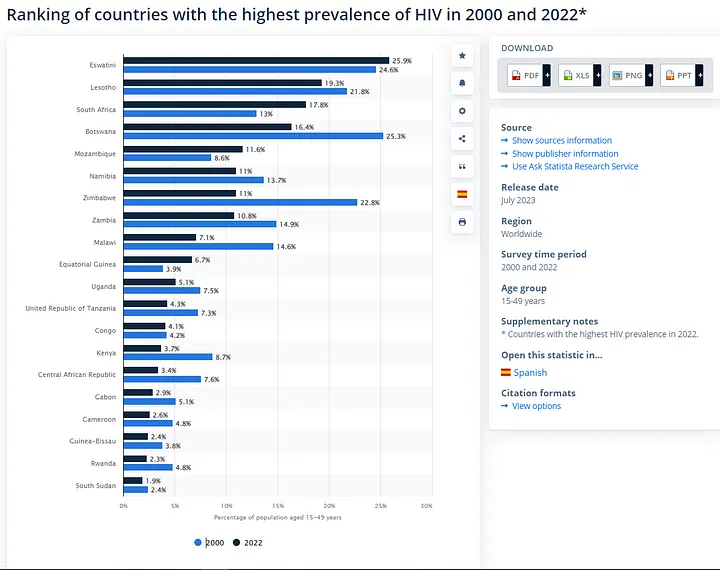
WHO reported that “periodic surveys on the prevalence of HIV in Somalia have shown that the rate of infection has been dropping over the last 14 years”. The findings of a 2014 survey showed that HIV prevalence in Somalia had reduced to a level that could be classified as a low-level epidemic in all the states.
The Somali National HIV/AIDS programme manager, Dr Sadia Abdisamad Abdullahi, attributed the low HIV prevalence in Somalia to Somali culture and society and the minimal risk factors associated with behaviours in the population.
PesaCheck has looked into a TikTok video purportedly claiming that Somalia ranks first among countries with the highest rates of HIV/AIDS and hepatitis in the world and finds it to be FALSE.
This post is part of an ongoing series of PesaCheck fact-checks examining content marked as potential misinformation on Facebook and other social media platforms.
By partnering with Facebook and similar social media platforms, third-party fact-checking organisations like PesaCheck are helping to sort fact from fiction. We do this by giving the public deeper insight and context to posts they see in their social media feeds.
Have you spotted what you think is fake or false information on Facebook? Here’s how you can report. And, here’s more information on PesaCheck’s methodology for fact-checking questionable content.
This fact-check was written by PesaCheck Fact-Checker Hassan Istiila and edited by PesaCheck senior copy editor Mary Mutisya and chief copy editor Stephen Ndegwa.
The article was approved for publication by PesaCheck’s managing editor Doreen Wainainah.
PesaCheck is East Africa’s first public finance fact-checking initiative. It was co-founded by Catherine Gicheru and Justin Arenstein, and is being incubated by the continent’s largest civic technology and data journalism accelerator: Code for Africa. It seeks to help the public separate fact from fiction in public pronouncements about the numbers that shape our world, with a special emphasis on pronouncements about public finances that shape government’s delivery of Sustainable Development Goals (SDG) public services, such as healthcare, rural development and access to water / sanitation. PesaCheck also tests the accuracy of media reportage. To find out more about the project, visit pesacheck.org.




